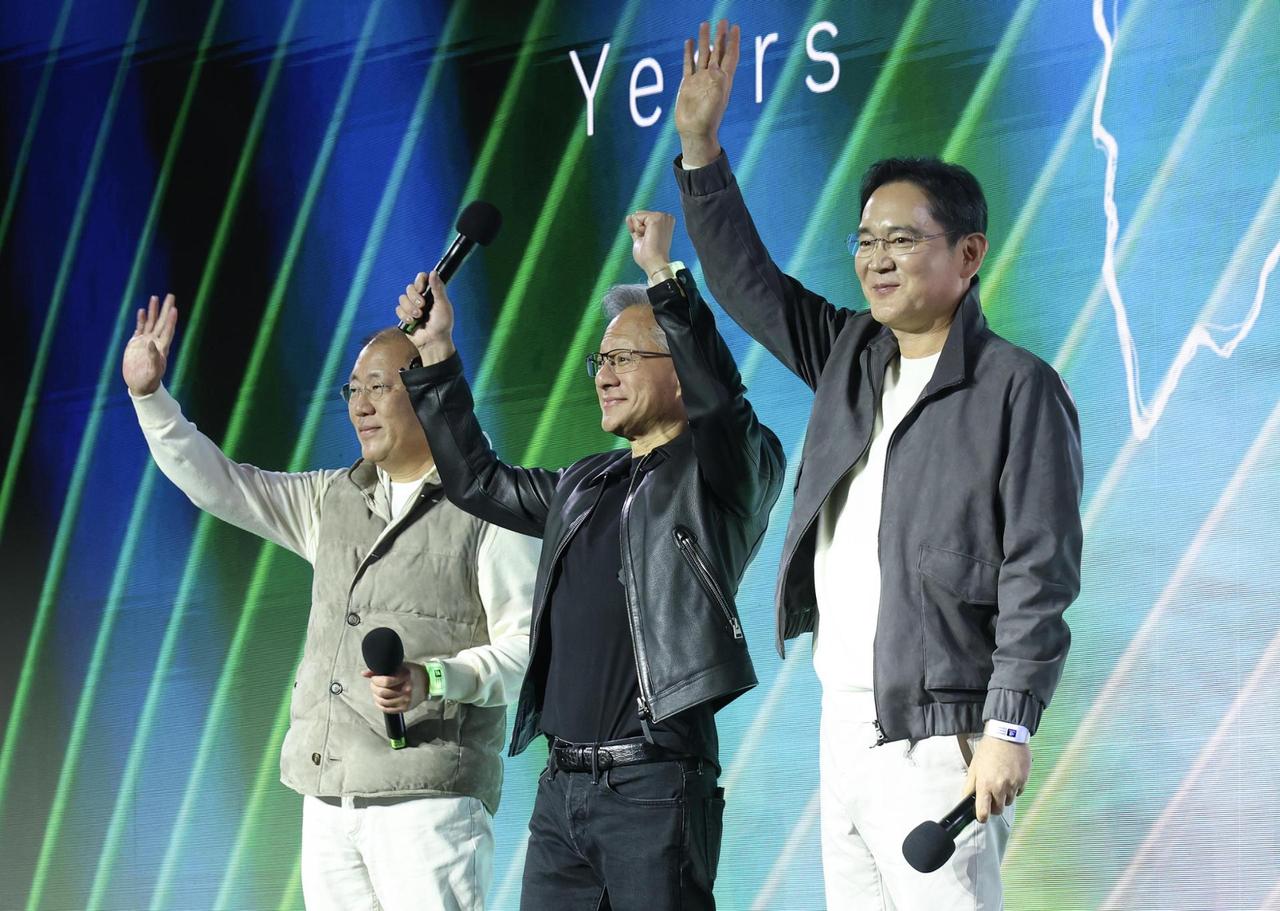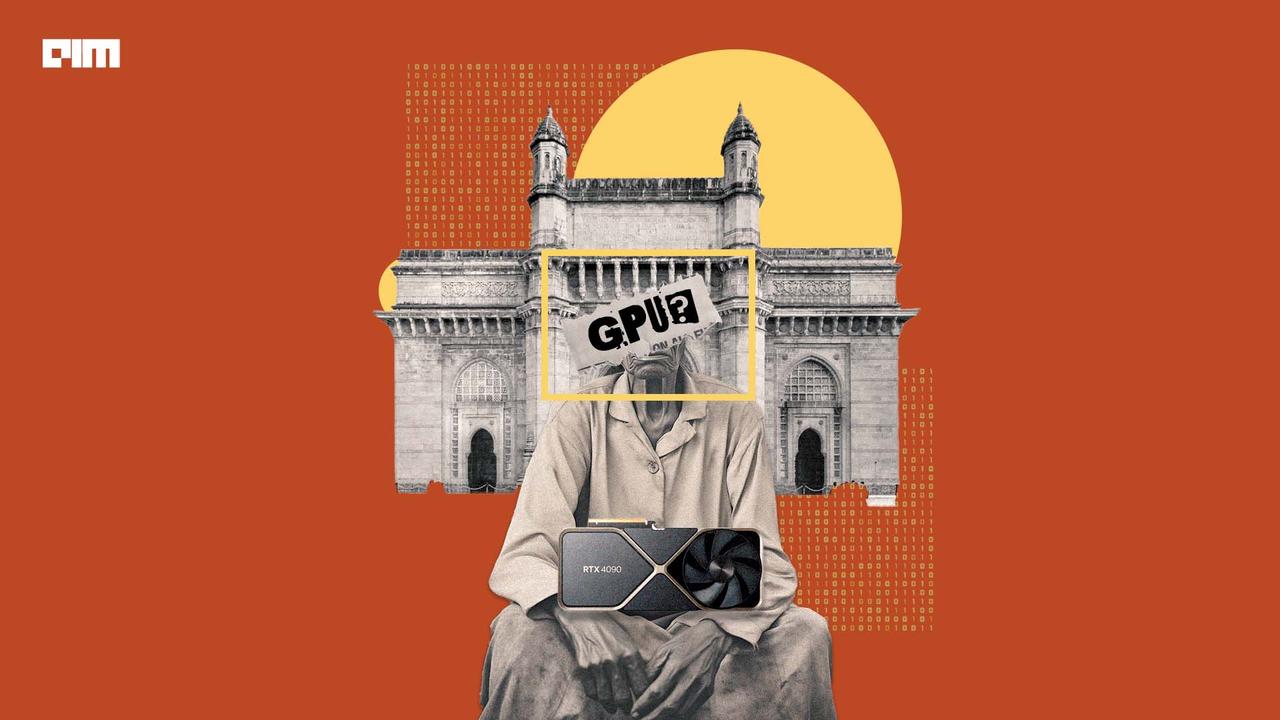South Korea Aims to Secure 18,000 GPUs by 2026 to Boost National AI Computing Capabilities
3 Sources
3 Sources
[1]
South Korea aims to secure 10,000 GPUs for national AI computing centre
SEOUL (Reuters) - South Korea on Monday announced plans to secure 10,000 high-performance graphics processing units (GPUs) within this year in a bid to keep pace as the global AI race escalates. "As competition for dominance in the AI industry intensifies, the competitive landscape is shifting from battles between companies to a full-scale rivalry between national innovation ecosystems," South Korea's acting President Choi Sang-mok said in a statement. Choi said that the government aims to secure the 10,000 GPUs through public-private cooperation to help the country launch services at its national AI computing centre early. Last month, the U.S. government announced a new regulation aimed at regulating the flow of American AI chips and technology needed for the most advanced AI applications. The rule restricts the export of GPUs, specialized processors originally created to accelerate graphics rendering. The number of GPUs needed for an AI model depends on how advanced the GPU is, how much data is being used to train the model, the size of the model itself and the time the developer wants to spend training it. The regulation divides the world into tiers, with South Korea among about 18 countries essentially exempt from the restrictions, while 120 other countries will face caps and countries like Iran, China and Russia barred completely. The South Korean government has not yet decided what GPU products to purchase, but details such as budget, GPU models and participating private companies would be finalised by September this year, an official from the Ministry of Science and ICT (information and communications technology) told Reuters. U.S. chip designer Nvidia, which has seen soaring demand from customers involved in generative AI and accelerated computing for its chips, commands about an 80% share of the global GPU market, far ahead of rivals Intel and AMD. Meanwhile, Microsoft-backed OpenAI is pushing ahead with its plan to reduce its reliance on Nvidia, Reuters reported last week, for its chip supply by developing its first generation of in-house AI silicon. OpenAI's popular chatbot ChatGPT is trained and improved on tens of thousands of GPUs. The ChatGPT maker is finalising the design for its first in-house chip in the next few months and plans to send it for fabrication at Taiwan Semiconductor Manufacturing Co, Reuters reported, citing sources. The AI race has also been shaken up by the emergence of Chinese startup DeepSeek, using AI models that optimise computational efficiency rather than raw processing power, potentially partly closing the gap between Chinese-made AI processors and more powerful U.S. counterparts.
[2]
Gov't to secure 18,000 GPUs by 1st half of 2026 to enhance AI capabilities
gettyimagesbank Korea will acquire 18,000 high-performance graphics processing units (GPUs) by the first half of next year to enhance the country's artificial intelligence (AI) computing capabilities, the science ministry said Thursday. The government initially plans to secure 10,000 GPUs within this year for the launch of a new national AI computing center in 2027, the Ministry of Science and ICT said in a press release. Separately, it will secure 8,000 GPUs by June next year to establish the country's sixth supercomputer, the release said. The move is aimed at swiftly building up the country's AI infrastructure and turning it into one of three global powers in the field, it said without elaborating. Korea aims to develop homegrown ChatGPT: acting president 2025-02-20 11:39 | Politics To build the state AI center, the government will have the state-run Korea Development Bank (KDB) extend low-rate policy loans, worth up to 2.5 trillion won ($1.7 billion), to private companies to join the construction project, a ministry official said over the phone. "The AI center is scheduled to open in 2027 but the government plans to start service this year to provide timely help to local businesses and researchers in the field," he said. The government aims to increase the ratio of domestically produced semiconductors used in the upcoming AI center to 50 percent by 2030, the ministry said. GPUs play a crucial role in AI, delivering top-tier performance for AI training and inference. They also provide significant advantages across various applications that require accelerated computing. (Yonhap)
[3]
South Korea aims to secure 10,000 GPUs for national AI computing centre
"As competition for dominance in the AI industry intensifies, the competitive landscape is shifting from battles between companies to a full-scale rivalry between national innovation ecosystems," South Korea's acting President Choi Sang-mok said in a statement.South Korea on Monday announced plans to secure 10,000 high-performance graphics processing units (GPUs) within this year in a bid to keep pace as the global AI race escalates. "As competition for dominance in the AI industry intensifies, the competitive landscape is shifting from battles between companies to a full-scale rivalry between national innovation ecosystems," South Korea's acting President Choi Sang-mok said in a statement. Choi said that the government aims to secure the 10,000 GPUs through public-private cooperation to help the country launch services at its national AI computing centre early. Last month, the US government announced a new regulation aimed at regulating the flow of American AI chips and technology needed for the most advanced AI applications. The rule restricts the export of GPUs, specialized processors originally created to accelerate graphics rendering. The number of GPUs needed for an AI model depends on how advanced the GPU is, how much data is being used to train the model, the size of the model itself and the time the developer wants to spend training it. The regulation divides the world into tiers, with South Korea among about 18 countries essentially exempt from the restrictions, while 120 other countries will face caps and countries like Iran, China and Russia barred completely. The South Korean government has not yet decided what GPU products to purchase, but details such as budget, GPU models and participating private companies would be finalised by September this year, an official from the Ministry of Science and ICT (information and communications technology) told Reuters. US chip designer Nvidia, which has seen soaring demand from customers involved in generative AI and accelerated computing for its chips, commands about an 80% share of the global GPU market, far ahead of rivals Intel and AMD. Meanwhile, Microsoft-backed OpenAI is pushing ahead with its plan to reduce its reliance on Nvidia, Reuters reported last week, for its chip supply by developing its first generation of in-house AI silicon. OpenAI's popular chatbot ChatGPT is trained and improved on tens of thousands of GPUs. The ChatGPT maker is finalising the design for its first in-house chip in the next few months and plans to send it for fabrication at Taiwan Semiconductor Manufacturing Co, Reuters reported, citing sources. The AI race has also been shaken up by the emergence of Chinese startup DeepSeek, using AI models that optimise computational efficiency rather than raw processing power, potentially partly closing the gap between Chinese-made AI processors and more powerful US counterparts.
Share
Share
Copy Link
South Korea announces plans to acquire 18,000 high-performance GPUs by mid-2026, with 10,000 units to be secured this year, as part of its strategy to enhance AI computing capabilities and compete in the global AI race.

South Korea's Ambitious GPU Acquisition Plan
South Korea has unveiled an ambitious plan to secure 18,000 high-performance graphics processing units (GPUs) by the first half of 2026, signaling a significant push to enhance its artificial intelligence (AI) computing capabilities
1
2
. This initiative is part of the country's strategy to position itself as a global leader in AI technology and infrastructure.Immediate Goals and Long-term Vision
The government's immediate focus is on acquiring 10,000 GPUs within 2023 to kickstart the launch of a new national AI computing center, slated for completion in 2027
2
. Additionally, plans are in place to secure another 8,000 GPUs by June 2024 for the country's sixth supercomputer2
. This aggressive timeline underscores South Korea's commitment to rapidly building up its AI infrastructure.Public-Private Cooperation and Funding
To realize this ambitious project, the South Korean government is leveraging public-private cooperation. The Korea Development Bank (KDB) will extend low-rate policy loans worth up to 2.5 trillion won ($1.7 billion) to private companies participating in the construction of the state AI center
2
. This approach aims to foster collaboration between the government and the private sector in developing AI capabilities.Global AI Race and Competitive Landscape
South Korea's acting President Choi Sang-mok emphasized the shifting nature of AI competition, stating, "As competition for dominance in the AI industry intensifies, the competitive landscape is shifting from battles between companies to a full-scale rivalry between national innovation ecosystems"
1
3
. This perspective highlights the growing importance of national AI strategies in the global technological landscape.International Context and GPU Market Dynamics
The announcement comes in the wake of new U.S. regulations aimed at controlling the export of advanced AI chips and technology
1
3
. South Korea, along with about 18 other countries, is essentially exempt from these restrictions, potentially giving it an advantage in accessing cutting-edge GPU technology1
3
.Currently, U.S. chip designer Nvidia dominates the global GPU market with an 80% share, far ahead of competitors like Intel and AMD
1
3
. However, the AI chip landscape is evolving, with companies like OpenAI exploring in-house chip development and Chinese startups like DeepSeek working on computationally efficient AI models1
3
.Related Stories
Domestic Semiconductor Production Goals
As part of its long-term strategy, the South Korean government aims to increase the ratio of domestically produced semiconductors used in the upcoming AI center to 50% by 2030
2
. This goal aligns with broader efforts to strengthen the country's position in the global semiconductor industry and reduce dependence on foreign technology.Implications for South Korea's AI Ecosystem
The acquisition of these GPUs is expected to provide timely support to local businesses and researchers in the AI field
2
. By establishing a robust AI computing infrastructure, South Korea aims to foster innovation, attract talent, and compete effectively in the rapidly evolving global AI landscape.References
Summarized by
Navi
[1]
Related Stories
South Korea Receives First Nvidia GPUs in Massive 260,000-Unit AI Infrastructure Initiative
27 Nov 2025•Business and Economy

Nvidia Forges Historic AI Partnership with South Korea, Deploying 260,000 GPUs Across Major Industries
31 Oct 2025•Business and Economy

India Boosts AI Infrastructure: 14,000 Additional GPUs to be Procured Under IndiaAI Mission
23 May 2025•Technology

Recent Highlights
1
Pentagon threatens to cut Anthropic's $200M contract over AI safety restrictions in military ops
Policy and Regulation

2
ByteDance's Seedance 2.0 AI video generator triggers copyright infringement battle with Hollywood
Policy and Regulation

3
OpenAI closes in on $100 billion funding round with $850 billion valuation as spending plans shift
Business and Economy





